Ben's 2011 In Film: Reflections And A Top 10
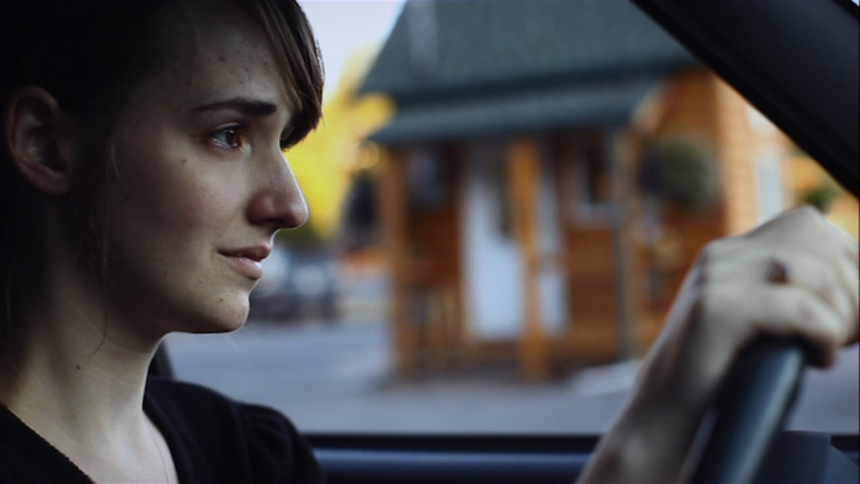
As a result of my hot/cold year at the cinema, talking, and then writing about film felt much harder to do. I increasingly worried about my ability to articulate why I liked a film. I constantly compared myself to other writers, which usually meant dismissing my own writing. By the end of the summer I needed every review to be a masterpiece or else none of it would matter, none of it would feel worth it. When those feelings come to town, sitting down to write becomes such a daunting task it is far, far easier to just get up and walk away. For me that was walking into a void, a place not defined by the things I knew or the self I knew, which meant taking a break from writing in all forms, and taking a break from thinking seriously and fastidiously about cinema as a life-defining medium.
I needed to experience and acknowledge first that despair, that frustration at being exhausted before I even started, and then to feel at peace in some sort of separation. After all this could I then return to watching movies, and then writing about movies, on new terms. What are these terms? Well, they are still largely undefined, still very much in and of that void... but I can tell you there is something far more hopeful about it all now, in these first afternoons of 2012. And the main reason behind that hope is ScreenAnarchy. For because of ScreenAnarchy, I know that no matter where I go, I'll always have a home base for cinema, a place of community, with a great readership, and a stellar bunch of colleagues, some of whom I am honored and blessed to call good friends.
But what about the movies? Because despite all this I never stopped watching movies -- oh, I could never fathom that.
Making this list means writing about many of these films for the first time, so expect a paragraph or two per entry. This is also the first year where nary a Japanese film (nor any selections from NYAFF) appear on my list -- certainly a surprise. Also a bit of a jaw-dropper, three French-language films -- this is odd because I'm rarely ever in tune with the cinematic aesthetics from that region. Many of the titles you'll find here interweave matters of the celestial, of the psychological, the emotional, spiritual and physical to such an intimate degree that not one could exist without the other. Which is (surprise, surprise) a lot like life, or at least my life, my topsy-turvy 2011. Like last year, I present this list alphabetized. So without further ado, my favorite films of 2011:
Beginners (U.S.)
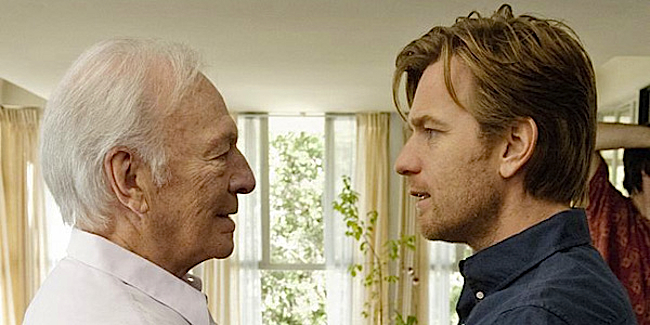 Though I was rather lukewarm on Mike Mills' feature debut Thumbsucker, I think it unfairly got lumped into that group of quirky indie films that started to appear in '05, peaking with Little Miss Sunshine and Juno a few years later. Despite my misgivings with Mills' debut, I thought it was far more existential than Diablo Cody and company. Now had you asked me last summer if his second feature Beginners had a likely shot at making my top ten of the year I would have said, "No way." Truth be told, it was a very close call.
Though I was rather lukewarm on Mike Mills' feature debut Thumbsucker, I think it unfairly got lumped into that group of quirky indie films that started to appear in '05, peaking with Little Miss Sunshine and Juno a few years later. Despite my misgivings with Mills' debut, I thought it was far more existential than Diablo Cody and company. Now had you asked me last summer if his second feature Beginners had a likely shot at making my top ten of the year I would have said, "No way." Truth be told, it was a very close call. But there is something so wonderful in this father & son story, something made from pure movie magic, you know that stuff you can't quite put your finger on... I just couldn't deny it a proper spot.
The performance that is being touted for awards season is Christopher Plummer playing Ewan McGregor's father who, at 80, comes out as a gay man, just months after his wife has passed. And while Plummer dazzles with a love for life that is infectious, I was quite taken by McGregor as his quiet, lovelorn son. He's in rare form here, turning in arguably his best performance since the slimy adulterer in 2003's Young Adam. In turn, Mills has matured and honed his craft by leaps and bounds since Thumbsucker, creating a world that is colored by loss, sadness and fear, yet full of love, hope and a glittering imagination that is nothing less than elating. And really how could I leave a film that references the birth of the Lego mini-fig off my list?
The Kid With A Bike (Belgium)
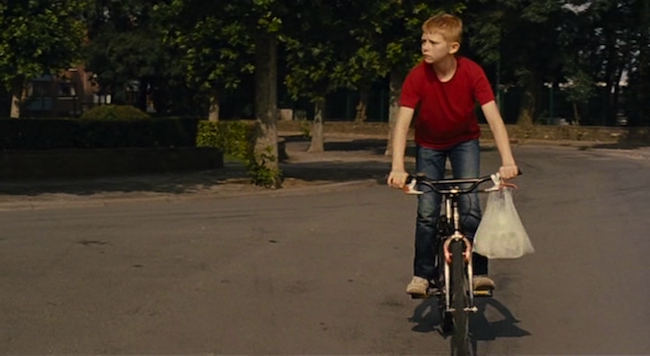 I've been a bad cinephile. Up until now I have never seen a film from Cannes darlings, Jean-Pierre & Luc Dardenne. And that isn't for a lack of interest. In fact even before I knew the filmamking bros. by name I had, as a teenager, been quite taken with the VHS box for Rosetta. Your guess is as good as mine as to why I never rented their first Palme d'Or winner. At any rate things have now been rectified with their latest tale of wayward youth -- a subject, if this Dardenne noob is not mistaken, they've returned to time and time again.
I've been a bad cinephile. Up until now I have never seen a film from Cannes darlings, Jean-Pierre & Luc Dardenne. And that isn't for a lack of interest. In fact even before I knew the filmamking bros. by name I had, as a teenager, been quite taken with the VHS box for Rosetta. Your guess is as good as mine as to why I never rented their first Palme d'Or winner. At any rate things have now been rectified with their latest tale of wayward youth -- a subject, if this Dardenne noob is not mistaken, they've returned to time and time again.11-year old Cyril has been left by his father at a state-run children's home. Convinced that his dad has not moved away, nor sold his beloved bike, Cyril fights tooth and nail to get to the truth of the matter. In the process he encounters Cecil De France's sympathetic hairdresser, who invites him to stay with him on weekends. Ever the resourceful little scrapper, Cyril also catches the eye of a local thug.
The Dardenne's film, while far from sentimental, echoes the narrative arc of a fairy tale, while ever being a morally complex if simple-hearted affair. Cyril, as tough as he is, just wants to be loved. Like any child he wants to have a home, and wants to know that he matters. The trials and tribulations he must go through to find that makes for a riveting cinematic experience.
Meek's Cutoff (U.S.)
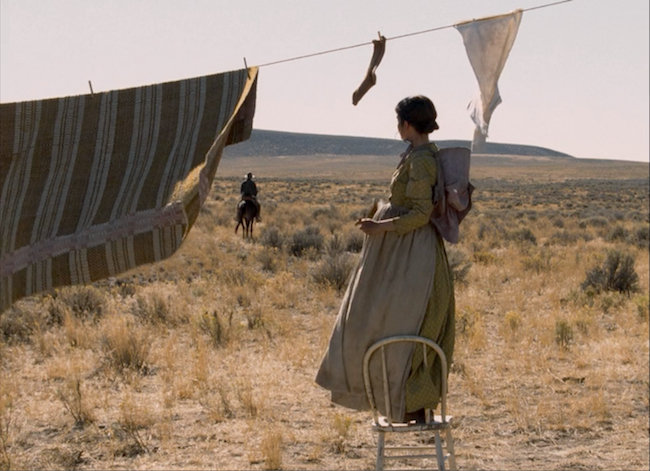 In September of 2010 I was all set to make my grand return to NYC after a few months away when I was robbed at gunpoint. With no ID or easy access to money for at least a week I was not fit to travel, and had to cancel my coverage of the New York Film Fest, where Wendy and Lucy director Kelly Reichardt's latest (a western!) was screening. Had I made it up for the fest Meek's Cutoff would have most assuredly had a place on my 2010 list. As it was, the film didn't get a theatrical release until last April, so I'm more than happy to include it for 2011.
In September of 2010 I was all set to make my grand return to NYC after a few months away when I was robbed at gunpoint. With no ID or easy access to money for at least a week I was not fit to travel, and had to cancel my coverage of the New York Film Fest, where Wendy and Lucy director Kelly Reichardt's latest (a western!) was screening. Had I made it up for the fest Meek's Cutoff would have most assuredly had a place on my 2010 list. As it was, the film didn't get a theatrical release until last April, so I'm more than happy to include it for 2011.And while I did just call Meek's Cutoff a western, it's been hotly contested that it is an anti-western. I'd say both genre classifications are accurate. Though I am of the mind that Reichardt's thoroughly opaque tale isn't too concerned with that stuff.
The film takes place in 1845 on the Oregon Trail. Three families are being led to the new promised land by a wily frontiers man by the name of Steven Meek, only it appears they're lost. Like Reichardt's previous features, most characters' motives and history are largely absent or expressed in small, fleeting gestures. By contrast Meek is Reichardt's most blustery character to date, so much so that at times Bruce Greenwood's performance can seem almost cartoonish in comparison to Michelle Williams' steadfast Emily Tetherow. And what a dueling pair they make!
And yet, Reichardt isn't mightily concerned with who is right and who is wrong here. What the film gets down to is the absolute moment, where who you might have been, what you might have been does not matter, for survival; just getting to that next crest, and to possible salvation, is all that counts. One viewing and eight months down the line, Meek's Cutoff is a film that still haunts my thoughts.
Memory Lane (France)
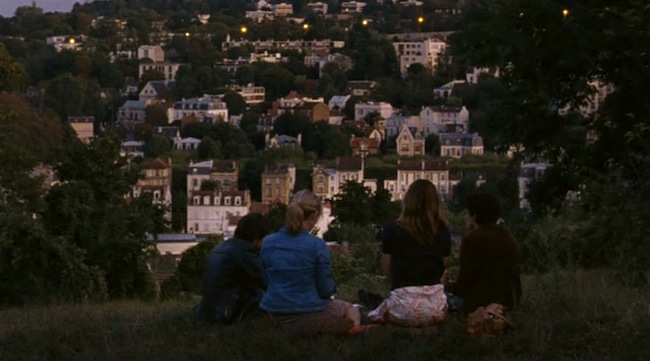 Here is a film I'm sure that even the most dedicated ScreenAnarchy reader has not heard of. Released in late 2010 in France to little fan fare, Mikhael Hers' first full length film (he made three 50 minutes films prior) was then selected for The Film Society of Lincoln Center's New Directors/New Films series, where it played to even less fan fare last spring. On the surface Memory Lane may sound like a French answer to mumblecore - a group of twenty-something friends reconnect over a summer in the Parisian suburb where they grew up. Hers' film though is very far from the lo-fi aesthetics and talky-washy antics of Joe Swanberg and the Duplass Bros.
Here is a film I'm sure that even the most dedicated ScreenAnarchy reader has not heard of. Released in late 2010 in France to little fan fare, Mikhael Hers' first full length film (he made three 50 minutes films prior) was then selected for The Film Society of Lincoln Center's New Directors/New Films series, where it played to even less fan fare last spring. On the surface Memory Lane may sound like a French answer to mumblecore - a group of twenty-something friends reconnect over a summer in the Parisian suburb where they grew up. Hers' film though is very far from the lo-fi aesthetics and talky-washy antics of Joe Swanberg and the Duplass Bros.Dreamy in tone, melancholy in mood, the young adults of Memory Lane walk the streets at night, under an almost ethereal glow. There is virtually nothing pretentious or hip or desperate about these people. Sure, some of them play in bands, work at the library or in a bookstore -- typical fare for the age, especially in cinematic portrayals -- but this all feels far too natural and nuanced to matter. None of these details are important, but they are important. Hers is a director who doesn't carry a judgmental bone in his cinematic body. He is a filmmaker of the little moments. He is fascinated and excited by the glances between two friends at a party, or as they walk home; of those gradual moments that build until they're holding each other's hands and it is the most natural thing in the world; the thing to have always been.
There is an everyday magic to Memory Lane, which makes it absolutely one of the best films about people in their twenties I have ever had the pleasure of seeing. It is always a great compliment to the filmmaker and his cast when I can say, "I would very much like to spend more time with these people." For these are not just my people, these people are me.
The Skin I Live In (Spain)
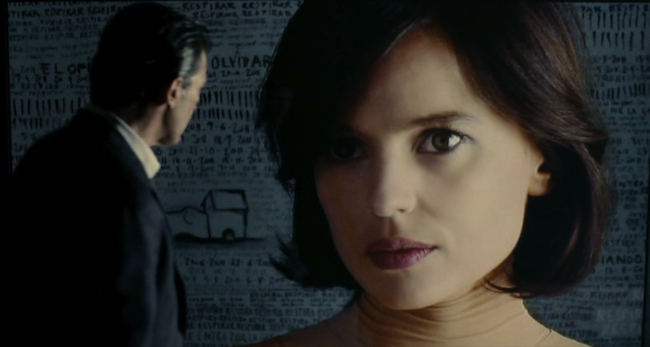 Though I have seen many of them, the films of Pedro Almodovar have been, at best, of fleeting interest to me. I saw All About My Mother at the age of sixteen, oddly enough with my own mother, which made the experience, well, all the more odd. That notwithstanding, Almodovar's dramatic flair and often thorny dissection of gender roles in society held little interest to me at sixteen, a time when I was just getting into the honor-bound, machismo drenched worlds of Akira Kurosawa.
Though I have seen many of them, the films of Pedro Almodovar have been, at best, of fleeting interest to me. I saw All About My Mother at the age of sixteen, oddly enough with my own mother, which made the experience, well, all the more odd. That notwithstanding, Almodovar's dramatic flair and often thorny dissection of gender roles in society held little interest to me at sixteen, a time when I was just getting into the honor-bound, machismo drenched worlds of Akira Kurosawa. Well, there is a time and a place for everything...
The Skin I Live In is Almodovar's monster movie; a science fiction opera, unbound. Throughout my viewing I was reminded of Mary Shelly's Frankenstein, Stevenson's Dr. Jekyl and Mr. Hyde, Hiroshi Teshigahara's The Face of Another, and the early films of Cronenberg. Like these tales, Almodovar's film defines itself by the amoral nature of science, the compulsion to create, the desire for revenge... and the hope of redemption.
As our scientist with a revolutionary formula for super skin, Antonio Banderas is less mad, more calculating and cold, and in brief moments, passionate beyond reason, and a force to be reckoned with. But it is his mysterious, ultimately resourceful captive played by the beguiling Elena Anaya that the title in large part refers to. Almodovar's penchant has always been for creating tragic yet strong female characters; survivors through and through. Anaya delivers this in spades. She is equally serene and ferocious; a curiosity; a sex symbol; a child; an experiment. Though the film uses the nature of one's skin to discuss the nature of one's self, we must go to that age old adage "the eyes have it." -- For Anaya's most certainly do.
Take Shelter (U.S.)
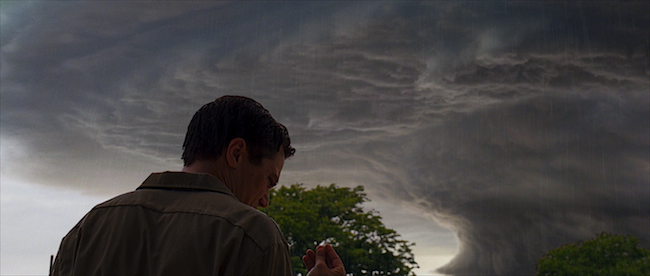 In his second collaboration with director Jeff Nichols, Michael Shannon plays Curtis LaForche a gentle giant of a man, a devoted father and husband whose sanity begins to waver when he dreams of, and then hallucinates that he is seeing apocalyptic-like storms. Nichols frames his story of a distraught family man around the themes of faith and belief -- the need to know one is not crazy... that desire to believe in yourself, to have others believe in you... and how this all ties into a world that is on some cusp of change whether it is economical, cultural, metaphysical, environmental, or rather all of the above.
In his second collaboration with director Jeff Nichols, Michael Shannon plays Curtis LaForche a gentle giant of a man, a devoted father and husband whose sanity begins to waver when he dreams of, and then hallucinates that he is seeing apocalyptic-like storms. Nichols frames his story of a distraught family man around the themes of faith and belief -- the need to know one is not crazy... that desire to believe in yourself, to have others believe in you... and how this all ties into a world that is on some cusp of change whether it is economical, cultural, metaphysical, environmental, or rather all of the above. Playing in the genre sandbox to sweeten his point but never straying from, nor mishandling Shannon's personal struggle, Nichols taps into the American zeitgeist with a nuanced gravitas that is refreshing and wholly affecting. Add to that Jessica Chastain's finest turn in what is her breakout year, and you have a rare American classic in the making.
Tomboy (France)
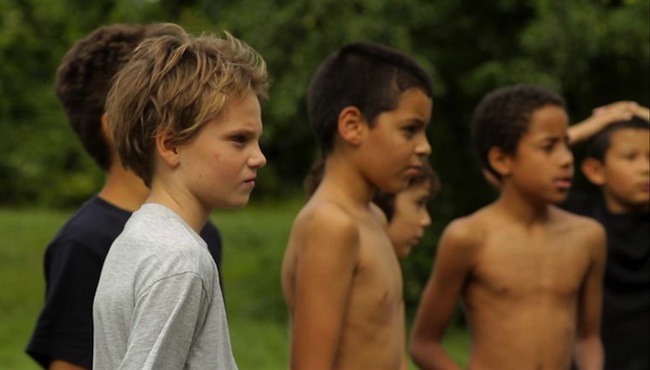 With her 2007 debut Water Lilies, and now with her second feature, Celine Sciamma is proving to be one of this generation's best directors of children, and of their often difficult-to-portray sexuality.
With her 2007 debut Water Lilies, and now with her second feature, Celine Sciamma is proving to be one of this generation's best directors of children, and of their often difficult-to-portray sexuality.While Water Lilies played out the often rocky, even sinister tale of two young teens toying between affection and manipulation, Tomboy takes a decidedly different route, stepping back to the pre-pubescent days.
10-year old Laure has just moved to a new town with her family, and is dead set on not spending the final days of the summer with her little sister. With hair chopped short she is mistaken by a neighborhood girl for a boy. Laure decides to go with this and introducers herself as Michaël.
Sciamma's naturalistic chronicling of a child's path to an identity of their own is often somber and heart-wrenching, but never heart-breaking, very gentle, and in fact quite sweet. Zoé Héran as Laure is absolutely captivating, giving us one of the most nuanced and sympathetic performances of 2011. If she so chooses to stick with acting, she could have quite the career ahead of her. As for the still-very-young Sciamma -- I can't wait for what she does next.
The Trip (U.K.)
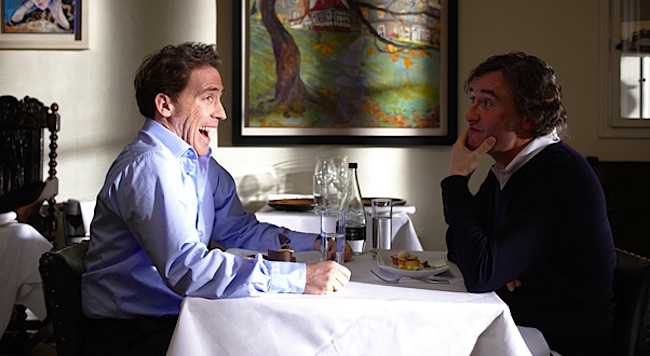 Come for Steve Coogan and Rob Brydon's dueling Michael Caine impressions, stay for the gourmet mussels cooked in their own juices (a selfish broth if there ever was one) in Michael Winterbottom's hilarious and just as sullen road-tripper.
Come for Steve Coogan and Rob Brydon's dueling Michael Caine impressions, stay for the gourmet mussels cooked in their own juices (a selfish broth if there ever was one) in Michael Winterbottom's hilarious and just as sullen road-tripper. Originally airing as a six episode series on the BBC in the fall of 2010, Winterbottom recut Coogan and Brydon's tour of Northern England restaurants for theatrical outings off isle. This then is probably being categorized as a footnote for 2011 cinema; a non-essential viewing. I say "look again." While all three talents have played with such moody and self-obsessed material in the past (and all together in 2005's A Cock and Bull Story), they achieve a new level of maturity in The Trip that resonates long after you've stopped laughing at this odd couple's exploits. Winterbottom knows precisely when to let Coogan and Brydon's expert improv skills shine through, to let that zaniness showboat with the pithiness, while never losing sight of the pathos of an unhappy man. The Trip is without a doubt, the funniest film I have had the pleasure of guffawing at since 2010's Zonad -- also first seen at the Tribeca Film Festival.
Read my full review here.
Uncle Boonmee Who Can Recall His Past Lives (Thailand)
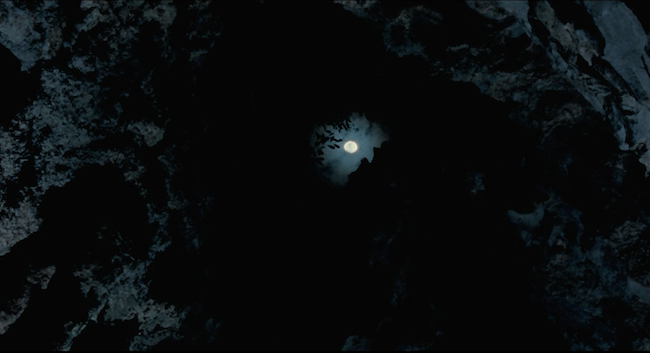 I find it kind of funny that in music, and in a lot of modern/post-mod literature, that the strange, abstract, sometimes surreal and metaphysical -- something familiar yet unknown -- can be so easily taken in by a larger majority of listeners and readers, and yet in cinema it seems to be deemed out and out "boring" by most folks. Chalk it up to conditioning then, and expectations of what cinema is and isn't, which is to say it is and isn't anything but cinema...
I find it kind of funny that in music, and in a lot of modern/post-mod literature, that the strange, abstract, sometimes surreal and metaphysical -- something familiar yet unknown -- can be so easily taken in by a larger majority of listeners and readers, and yet in cinema it seems to be deemed out and out "boring" by most folks. Chalk it up to conditioning then, and expectations of what cinema is and isn't, which is to say it is and isn't anything but cinema... Uncle Boonmee then is cinema operating in one of its highest, most breathtaking forms. There is a beautiful nonchalance about the way director Apichtapong Weerasethakul approaches the supernatural here. Though they are most certainly transformed by these events, his characters are neither shocked nor stunned by the arrival of ghosts and long lost sons now transformed into legendary creatures of the forest. It is a part of their celestial heritage, just as normal as death and dying, a rite of passage unto itself, yet also a burden which is becoming stranger and more foreign to them by the day.
Weerasethakul's film is one that in large part bypasses the emotional, certainly doesn't give the intellectual the time of day (though it is a film for deep thinkers) and goes straight to holding hands with the spirit. Now whether this is a spiritual movie is up to the viewer to decide. I certainly found it to be, as my experience was akin to a time of meditation, contemplation, reflection and flow within oneself and the larger stream of things. In fact, I think at its best cinema can be the most spiritual of art forms, transcending and encompassing all. Uncle Boonmee is a prime example of this.
Without (U.S.)
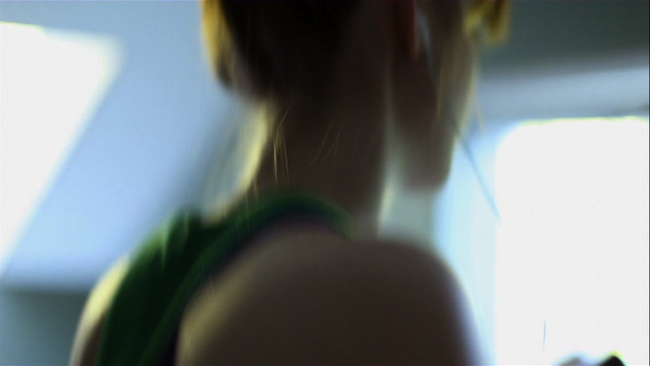 Had I opted to go the numbered route from 10-1, it is quite possible that Mark Jackson's debut feature would have ended up in the exact spot we find it in now. Without is everything an independent film should be: daring and unique in vision, mesmerizing in technique; a showcase for new talent in front of and behind the camera. I first got wind of Without just after it premiered at Slamdance in January, and by the end of February had been able to see the film, and write really the only review I have been truly proud of all year. In said review I called the film "a micro-budgeted minimalist stroke of genius." 11 months later, I stand by that statement wholeheartedly.
Had I opted to go the numbered route from 10-1, it is quite possible that Mark Jackson's debut feature would have ended up in the exact spot we find it in now. Without is everything an independent film should be: daring and unique in vision, mesmerizing in technique; a showcase for new talent in front of and behind the camera. I first got wind of Without just after it premiered at Slamdance in January, and by the end of February had been able to see the film, and write really the only review I have been truly proud of all year. In said review I called the film "a micro-budgeted minimalist stroke of genius." 11 months later, I stand by that statement wholeheartedly. As a young woman in grieving, Joslyn Jensen's performance is equally horrifying and heartbreaking. The fragility and rawness she puts on display here is career-making stuff. In turn Jackson takes what sounds like a small character drama, and explores some of the greatest existential, sexual and technological questions facing young people today. And he does this without being preachy, corny or overbearing. Recalling early Polanksi, or more recently Andrea Arnold's Red Road sans urban setting, Jessica Dimmock and Diego Garcia's cinematography adds a near supernatural, hallucinogenic layer to the proceedings.
So while I'm not going to call Without my absolute favorite film of 2011, it is most certainly my favorite undistributed film of 2011. Here's to it getting some kind of release in the coming year. It deserves nothing less.
------------
Now to those who stuck around, my humblest of thanks. Here are 20 honorable mentions:
The Arbor, Attack the Block, Attenberg, Beyond the Black Rainbow, Cave of Forgotten Dreams, Certified Copy, The Future, The Guard, Heaven's Story, Hideaways, Haru's Journey, Melancholia, Midnight in Paris, Milocrorze: A Love Story, Nostalgia for the Light, Rise of the Planet of the Apes, She Monkeys, Super 8, Terri, Trollhunter.
And, as an added bonus, my biggest discoveries: Code Unknown, Daises, Dogtooth, Few of Us, Marketa Lazarova, Martin, Punch Drunk Love, Three Days, Valerie and her Week of Wonders.

Do you feel this content is inappropriate or infringes upon your rights? Click here to report it, or see our DMCA policy.






